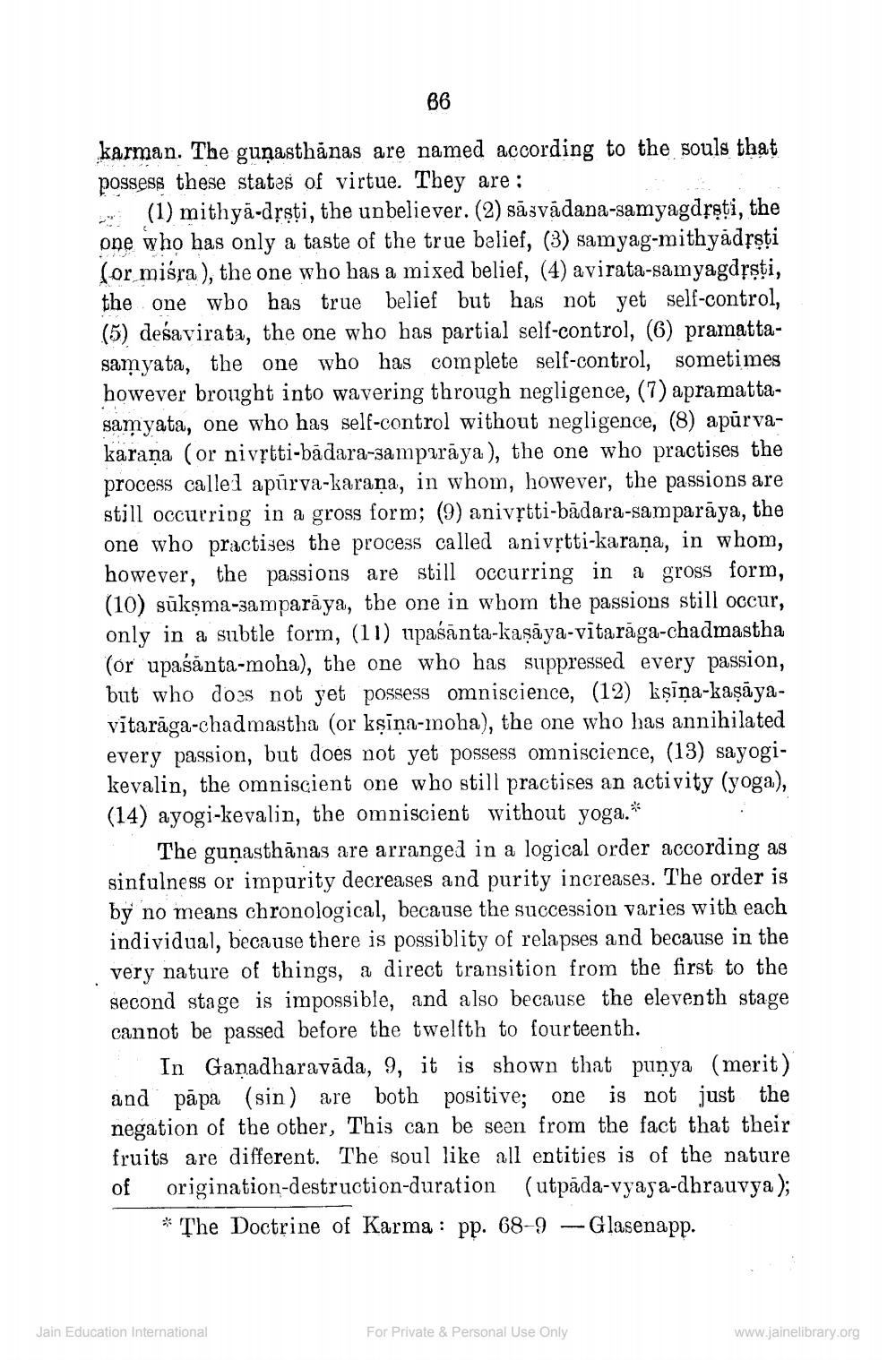________________
66
karman. The gunasthanas are named according to the souls that possess these states of virtue. They are:
(1) mithya-drsti, the unbeliever. (2) sasvadana-samyagdṛṣṭi, the one who has only a taste of the true belief, (3) samyag-mithyadṛṣṭi (or miśra), the one who has a mixed belief, (4) avirata-samyagdṛṣṭi, the one who has true belief but has not yet self-control, (5) desavirata, the one who has partial self-control, (6) pramattasamyata, the one who has complete self-control, sometimes however brought into wavering through negligence, (7) apramattasamyata, one who has self-control without negligence, (8) apurvakarana (or nivṛtti-badara-samparaya), the one who practises the process called apurva-karana, in whom, however, the passions are still occurring in a gross form; (9) anivṛtti-badara-samparaya, the one who practises the process called anivṛtti-karana, in whom, however, the passions are still occurring in a gross form, (10) sükṣma-samparaya, the one in whom the passions still occur, only in a subtle form, (11) upaśānta-kaṣaya-vitaraga-chadmastha (or upasanta-moha), the one who has suppressed every passion, but who does not yet possess omniscience, (12) kṣīņa-kaṣāyavitaraga-chadmastha (or kṣina-moha), the one who has annihilated every passion, but does not yet possess omniscience, (13) sayogikevalin, the omniscient one who still practises an activity (yoga), (14) ayogi-kevalin, the omniscient without yoga.*
The gunasthanas are arranged in a logical order according as sinfulness or impurity decreases and purity increases. The order is by no means chronological, because the succession varies with each individual, because there is possiblity of relapses and because in the very nature of things, a direct transition from the first to the second stage is impossible, and also because the eleventh stage cannot be passed before the twelfth to fourteenth.
In Gaṇadharavada, 9, it is shown that punya (merit) and papa (sin) are both positive; one is not just the negation of the other, This can be seen from the fact that their fruits are different. The soul like all entities is of the nature origination-destruction-duration (utpada-vyaya-dhrauvya); *The Doctrine of Karma: pp. 68-9 -Glasenapp.
of
Jain Education International
For Private & Personal Use Only
www.jainelibrary.org




